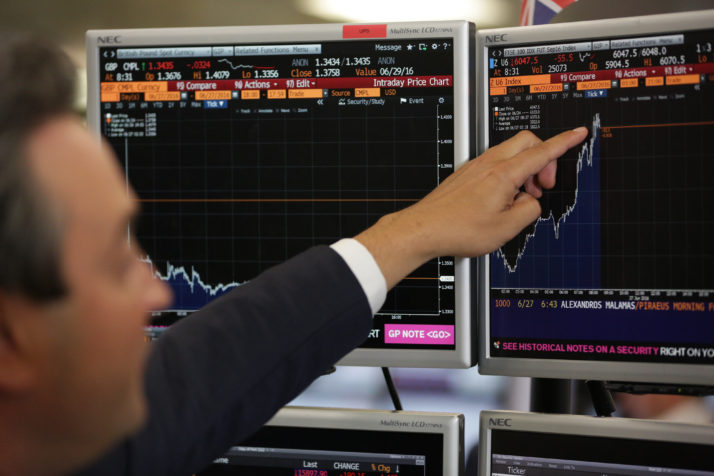- Exchange Traded Derivatives Can Support Nigeria’s Growth Ambition
Ahead of the launch of Exchange Traded Derivatives, ETDs, by the Nigerian Stock Exchange, NSE, later in the year, the 2nd Vice-President of the NSE Council, Mr. Abimbola Ogunbanjo, has expressed optimism that the ETD initiative will develop into a robust market that could support the nation’s growth ambition.
He spoke at a training on ‘Legal & Risk Aspects of Derivatives and Central Counter-party Clearing (CCP) Transactions’ organised by the Exchange in Lagos, to mark the take-off of the X-Academy recently launched by the NSE for investors and dealers.
He said his optimism stemmed from the success of the same initiative in South Africa as an example of Africa’s first derivative market.
He noted that the product has experienced exponential growth globally, growing by over 24 per cent in the last 10 years with about €457 trillion of notional amount outstanding in 2014.
Ogunbanjo attributed the growth to drive for product and technology innovation coupled with competition, stressing that it has created many new jobs both at exchanges and intermediaries as well as at related service providers.
Financial instruments
“No other class of financial instruments has experienced as much innovation from its embryonic development to a fully developed and respected financial market”, he said, adding “European derivatives players, today, account for more than 20 percent of the European wholesale financial services sector’s revenues and contribute 0.4 percent to total European Gross Domestic Product, GDP.
South Africa’s derivatives market has grown rapidly in recent years, which has supported capital inflows and helped market participants to price, unbundle and transfer risk.”
He dismissed the notion that ETDs could be used to thwart market regulation, arguing, “To some, derivatives are simple tools that allow market participants to efficiently manage their risks. To others, derivatives are weapons that allow market participants to thwart regulations, exceed risk limits, hide market exposures and threaten the very fabric of the world’s economic system. As with any tool, the answer as to whether the tool is good or bad is determined by the way it is used and who is using it.
“The concept of derivatives remains relatively novel in the Nigerian financial market space and has only been noticeable within the Over- the Counter (OTC) segment of the market. The frontiers of the Nigerian financial market are expected to grow exponentially due to enhanced liquidity arising from the development of new and intricate financial instruments.
“Given the open and transparent financial market place the NSE offers to a wide range of domestic and international investors, it is expected that all participants must have the commensurate capacity and knowledge-base to deal with the intricacies and the sometimes esoteric features of derivatives. Accordingly, the need for this training in the face of the dearth of local capacity cannot be overemphasized,” he said.


 Forex3 weeks ago
Forex3 weeks ago
 Naira2 weeks ago
Naira2 weeks ago
 Billionaire Watch2 weeks ago
Billionaire Watch2 weeks ago



 Naira3 weeks ago
Naira3 weeks ago






 Naira2 weeks ago
Naira2 weeks ago




 Naira1 week ago
Naira1 week ago




 Naira4 weeks ago
Naira4 weeks ago






 Naira1 week ago
Naira1 week ago























